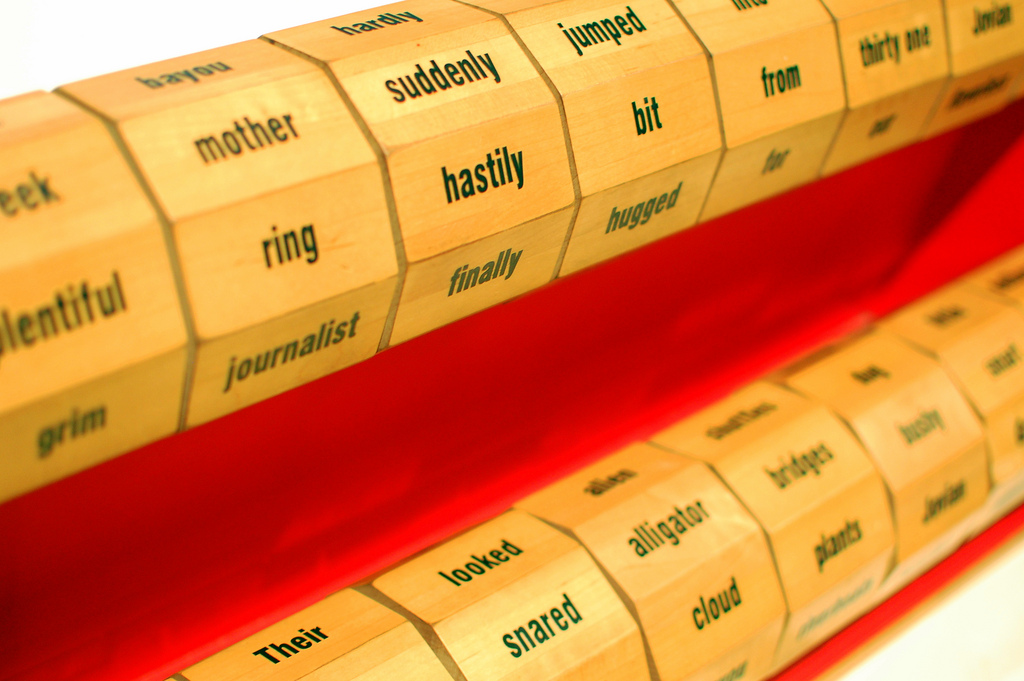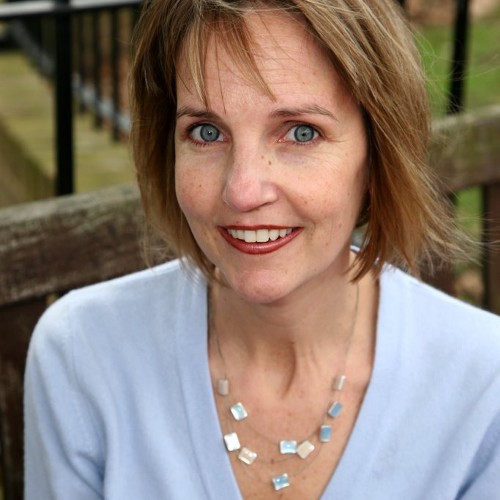
Random Words Make a Sentence by Steve Snodgrass via Flickr
I’ve started reading Tim Harford’s book, Messy: The Power of Disorder to Transform Our Lives. Its basic thrust is that creativity is fostered not by carefully organizing our time and ideas, but by allowing disorder to interrupt our routines. One way to induce this creative messiness, Harford argues, is by introducing random stimuli to trigger new ways of thinking.
So, for example, when I taught a workshop on creativity recently for a group of researchers out at Oxford, we did a “random word” exercise. I had them open to a random page of whatever they happened to be carrying – a book, a magazine, instructions for a writing exercise – and select the eighth word on that page. I then asked them to use that word – whatever it happened to be – to help them generate new ways of thinking about a challenge they were facing in their lives: personal…professional…in their research.
I myself did something similar yesterday. I was on a day out with a group of coaches and clients at The Writing Coach, where I work as a consultant. These periodic gatherings are a way to foster real life interaction among a community of writers that is otherwise largely virtual.
As the gathering was held at The National Portrait Gallery in London, our fearless leader suggested that we might also use this as an opportunity to do some writing. So she handed out a list of random words and invited us to use them as a prompt for some aspect of our writing – e.g., a character, a scene, a setting – as we gazed upon the pictures. It was your proverbial “artist’s date,” in Julia Cameron parlance.
My word was “resurfacing.” Here’s how the Cambridge dictionary defines it:
a. Covering or adding layers (as in to put a new surface on a road)
b. To rise to the surface of the water again
c. To appear again after being lost, stolen or absent
As I strode through the early 20th century wing of the museum, I reflected upon this word and its myriad meanings. And I realized that “resurfacing” was a wonderful prism through which to think about the current stage of my professional life.
As I embrace a portfolio career, I am in many ways “resurfacing” the different aspects of my professional self: the writer, the editor, the coach, the teacher…even the project manager. Just as I could readily detect where some of the modernist artists had applied new layers of paint to their renderings of, say, James Joyce, the original image was still visible underneath. Together, they yielded one person, rendered simultaneously through multiple angles.
At the same time, however, I also feel that I am reappearing to myself – as my whole self – after being absent for a long period of time. And in so doing, I am rising to the surface of the water in a new, more integrated form.
I’ve long been an advocate of choosing concepts, not lists, to frame my New Year’s resolutions. As of yesterday, however, I think I’m also going to embrace the idea of choosing words as a metaphor for self.
Is there a word that’s helped you to redefine yourself? Have you ever used a randomness strategy to stimulate your thinking?
So, for example, when I taught a workshop on creativity recently for a group of researchers out at Oxford, we did a “random word” exercise. I had them open to a random page of whatever they happened to be carrying – a book, a magazine, instructions for a writing exercise – and select the eighth word on that page. I then asked them to use that word – whatever it happened to be – to help them generate new ways of thinking about a challenge they were facing in their lives: personal…professional…in their research.
I myself did something similar yesterday. I was on a day out with a group of coaches and clients at The Writing Coach, where I work as a consultant. These periodic gatherings are a way to foster real life interaction among a community of writers that is otherwise largely virtual.
As the gathering was held at The National Portrait Gallery in London, our fearless leader suggested that we might also use this as an opportunity to do some writing. So she handed out a list of random words and invited us to use them as a prompt for some aspect of our writing – e.g., a character, a scene, a setting – as we gazed upon the pictures. It was your proverbial “artist’s date,” in Julia Cameron parlance.
My word was “resurfacing.” Here’s how the Cambridge dictionary defines it:
a. Covering or adding layers (as in to put a new surface on a road)
b. To rise to the surface of the water again
As I strode through the early 20th century wing of the museum, I reflected upon this word and its myriad meanings. And I realized that “resurfacing” was a wonderful prism through which to think about the current stage of my professional life.
c. To appear again after being lost, stolen or absent
As I embrace a portfolio career, I am in many ways “resurfacing” the different aspects of my professional self: the writer, the editor, the coach, the teacher…even the project manager. Just as I could readily detect where some of the modernist artists had applied new layers of paint to their renderings of, say, James Joyce, the original image was still visible underneath. Together, they yielded one person, rendered simultaneously through multiple angles.
At the same time, however, I also feel that I am reappearing to myself – as my whole self – after being absent for a long period of time. And in so doing, I am rising to the surface of the water in a new, more integrated form.
I’ve long been an advocate of choosing concepts, not lists, to frame my New Year’s resolutions. As of yesterday, however, I think I’m also going to embrace the idea of choosing words as a metaphor for self.
Is there a word that’s helped you to redefine yourself? Have you ever used a randomness strategy to stimulate your thinking?

